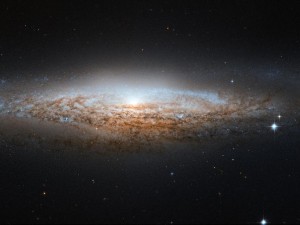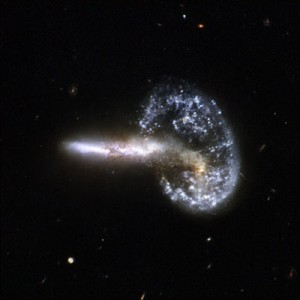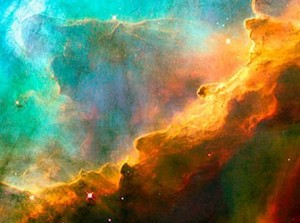Stopped at a light this morning, I turned to see a woman about my age with a swirling tattoo on her neck beating out a song on her steering-wheel. I knew nothing about her. I doubt that I will never see her again. Why is she important? Somewhere in Sweden a Somali engineer admitted to the country as a political refugee is seated in a language class watching snow fall for the first time ever. Should his life carry any weight with me? To anyone who does not know him?
never see her again. Why is she important? Somewhere in Sweden a Somali engineer admitted to the country as a political refugee is seated in a language class watching snow fall for the first time ever. Should his life carry any weight with me? To anyone who does not know him?
A galaxy much like the Milky Way, NGC 2683, 16 million light years from Earth and home to billions of stars and an incalculable number of planets.
Let me eliminate any suspense. I believe that each person matters. Presently and fading back into histories almost wholly blank for most human beings, every one of us, all of the billions who can now now look up at the sun and all the billions who have disappeared, we all are important.
There. Settled.
Right.
 Why do I believe this when I might at most personally know and value a few hundred people over the course of my life? Why should the unknowable billions count for anything to me?
Why do I believe this when I might at most personally know and value a few hundred people over the course of my life? Why should the unknowable billions count for anything to me?
A collision between two galaxies.
Isn’t this purely a kind of insipid, theoretical enterprise – after all, it simply is not possible to feel anything genuine for the masses who are faceless, nameless, and historyless to me?
I don’t think I’m trying to elevate ‘feeling’ to a moral tool (although a ‘feeling’ of compassion is such a tool). I’m searching for something more solid than feelings.
What I’ve tried to figure out for myself is why I think this is true in light of the immensity of the universe, time and history – spaces so vast that individual human beings, with very few exceptions, simply and voicelessly merge with the dust we must all become.
For example, consider this:
In trying to explain the ongoing expansion of the universe, cosmologists invoke the metaphor of the expanding balloon. Take a sharpie and draw two small circles on a flat, deflated balloon. The circles seem to fill up the surface of the balloon. They lie close to each other. Now you begin to fill it with air. As it expands, the distance of the circles from each other increases. More expansion, more distance. Infinite expansion, infinite distance. As the universe inexorably expands, so does the distance between galaxies expand, between stars, between solar systems, between planets.
Do you yet feel lonely?
The immensity of the universe is so staggering, the number of galaxies calculated at perhaps a trillion#, the number of stars and planets a calculation that goes off the scale of apprehension and becomes mystical, a figure that means more as a spell than it does within the confines of comprehensible logic.
of apprehension and becomes mystical, a figure that means more as a spell than it does within the confines of comprehensible logic.
A small region in the Swan Nebula, 5,500 light years away; stars are being born here.
In the realm of the infinite why would anyone — you, me, Beethoven, Peter the Great, Thomas Edison, the barista who preps your morning coffee, every mother’s son or daughter, be of any consequence?